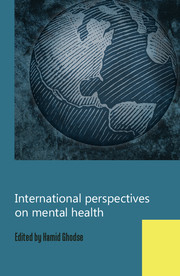Jamaica
from North America
Published online by Cambridge University Press: 02 January 2018
Summary
The intense historical relationship linking Jamaica and Britain to 300 years of the transatlantic slave trade and 200 years of colonialism has left 2.7 million souls living in Jamaica, 80% of African origin, 15% of mixed Creole background and 5% of Asian Indian, Chinese and European ancestry. With a per capita gross domestic product of US$4104 in 2007, one-third of the population is impoverished, the majority struggling for economic survival. The prevailing religion is Protestant, although the presence of African retentions such as Obeah and Pocomania are still widely and profoundly experienced, and the powerful Rastafarian movement emerged as a countercultural religious force after 1930. The paradox and contradictions of five centuries of Jamaican resistance to slavery and colonial oppression have spawned a tiny, resilient, creative, multicultural island people, who have achieved a worldwide philosophical, political and religious impact, phenomenal sporting prowess, astonishing musical and performing creativity, and a criminal underworld that has stunned by its propensity for violence.
Policy and service
Hickling & Sorel (2005) discuss mental health policy and legislation in Jamaica and the English-speaking Caribbean, and the development of the Lunatic Asylum in Kingston.
Mental health legislation originated from colonial Britain in 1872, cementing the draconian policy of police arrest for lunacy and incarceration in the oppressive lunatic asylums that has dogged the history of mental healthcare in the UK, with successive attempts at legislative reform in that country in the 20th century. Jamaica broke with this British tradition in 1974 by virtually abandoning the custodial approach to the treatment of mental illness, and by the creation of a nationwide system of care that marginalised police involvement in the management of people with a mental illness, and placed their treatment squarely in the purview of the medical and nursing professions. As a result, a community mental health system has now evolved that is situated firmly in the primary healthcare system of the country, with seminal links to public sector medical and nursing professionals.
A network of over 300 clinics in the island of 4400 square miles provides a full range of mental health services, delivered primarily by community mental health nurses (called mental health officers), supervised by 30 psychiatrists.
- Type
- Chapter
- Information
- International Perspectives on Mental Health , pp. 441 - 445Publisher: Royal College of PsychiatristsPrint publication year: 2011



